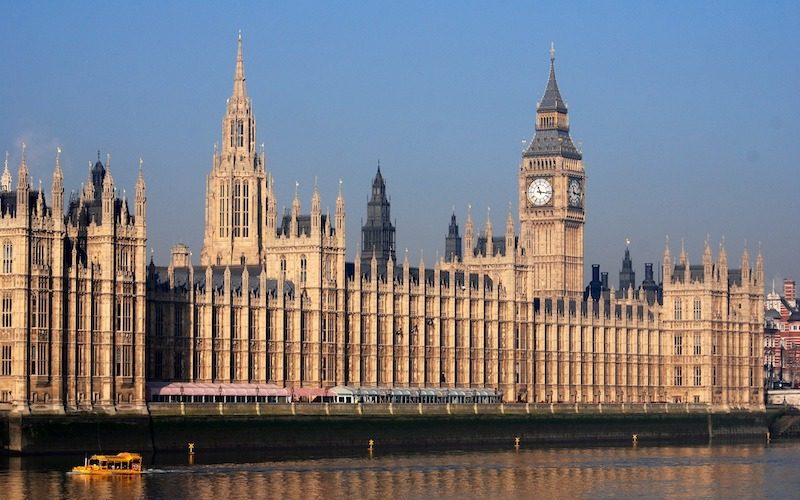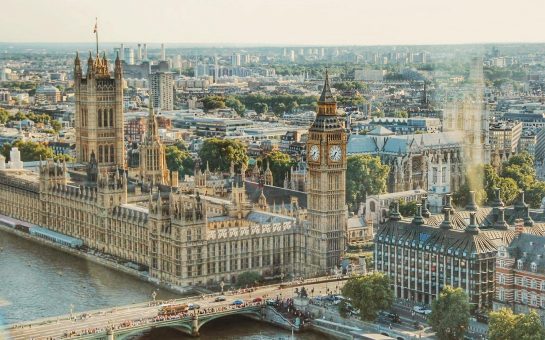The number of MPs suspended from the House of Commons has reached a post-war high during the current Parliament.
A total of 16 MPs have been suspended since Boris Johnson won the last general election in December 2019, the same number as the previous five Parliaments combined.
This alongside near-record levels of MP resignations and losing the whip, alongside Johnson’s resignation as Prime Minister means that this has been the unruliest Parliament in modern times.
Labour MP for Dagenham and Rainham Jon Cruddas said: “I think the behaviour of recent and former Conservative Prime Ministers has paved the way for the sleaze which seems to be unfolding almost weekly.
“I have no doubt that the majority of 2019 emboldened some MPs, who would have gone into Government believing they had carte blanche to behave in such ways.
“Serving as a Member of Parliament is both a great honour and a civic duty, governed by the Nolan Principles of Public Life.
“The widespread misconduct we have seen playing out in the media over this Parliament makes a mockery of public trust and our democracy.
“It is time for a general election.”
Among the MPs who have been suspended during this term include Conservative MP for Chipping Barnet Theresa Villiers and Labour MP for Bermondsey and Old Southwark Neil Coyle.
Villiers, alongside four other then Conservative MPs, received a one day suspension for trying to influence a judge into the trial of former MP Charles Elphicke, who was found guilty on three cases of sexual assault.
Coyle was found to breaching Parliament’s bullying and harassment policy, for which he received a five-day suspension.
Angus Brown from The Constitution Society argues that changes in the rules and processes surrounding MPs conduct rather than changes in MP behaviour has caused the increase in suspensions.
He said: “In the awake of the expenses scandal that damaged public confidence in Parliament, the Standards and Privileges Committee was divided in two to facilitate the appointment of non-Parliamentarian ‘lay members’ to oversee MPs’ conduct whilst maintaining Parliament’s autonomy in regulating Parliamentary Privilege.”
“Additionally, in 2020, a new Independent Expert Panel’ was established to take over Parliament’s Independent Complaints and Grievance Scheme, itself only established in 2018 in the wake of the MeToo movement in which the ICGS and the Independent Expert Panel deal with bullying, harassment and sexual misconduct claims independent of Parliament.
“These are part of the driving force behind the increase in Parliamentary suspensions and have undeniably improved the way our Parliamentarians are held to account.”
The increased number of suspensions has helped to enhance the number of MPs who have resigned from the House, with only the 1983 Conservative Government seeing more resignations.
That Parliament saw eight Northern Ireland MPs resign in December 1985 in protest of the Anglo-Irish Agreement.
An extended suspension of 10 sitting days or 14 working days is also one of the triggers to recall an MP under the Recall of MPs Act 2015.
If that happens, and then if 10% of the MP’s constituents sign a resulting petition in a six-week-period, then the MP is forced to resign from the House.
The first MP to be successfully recalled was former Labour MP for Peterborough Fiona Onasanya in May 2019.
During this Parliament, SNP MP for Rutherglen and Hamilton West Margaret Ferrier and Conservative MP for Wellingborough Peter Bone were both forced to resign after successful recall petitions.
Blackpool South’s Scott Benton resigned during the recall petition period after a 35-day suspension was given for taking money for lobby ministers for gambling firms.
Other scandals that have led to MPs resigning during this Parliament include Imran Amhed Khan‘s sexual assault conviction, Neil Parish watching pornography in the House of Commons.
And of course, Johnson resigning from the Commons for a second time in 2023 after receiving a report that found out to have misled the House in relation to the Partygate Scandal – a far cry from when he resigned in 2008 after being elected Mayor of London.
The increase in scandals can also be seen by the fact that more MPs have seen the whip withdrawn during this Parliament than any other apart from 2017-19 which was enhanced when Johnson removed the whip from 21 MPs who would not vote for his Brexit deal.
In total, 43 MPs have either resigned the whip or had the whip withdrawn or suspended in the current Parliament.
Comparatively, in the two decades and five Parliaments between 1997 and 2017, there were only 48 whip resignations or withdrawals.
With Prime Minister Rishi Sunak officially calling a general election for Thursday 4 July, that means Parliament will be formally dissolved a week today on 30 May.
As such, there are unlikely to be any more resignations over the next seven days, but nevertheless this particular Parliament will likely go down in history for all the wrong reasons.





